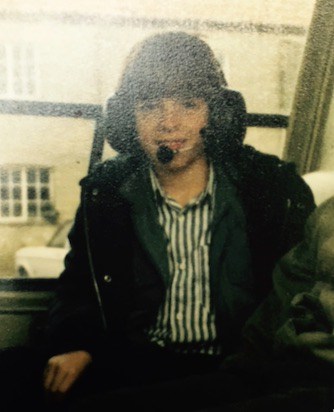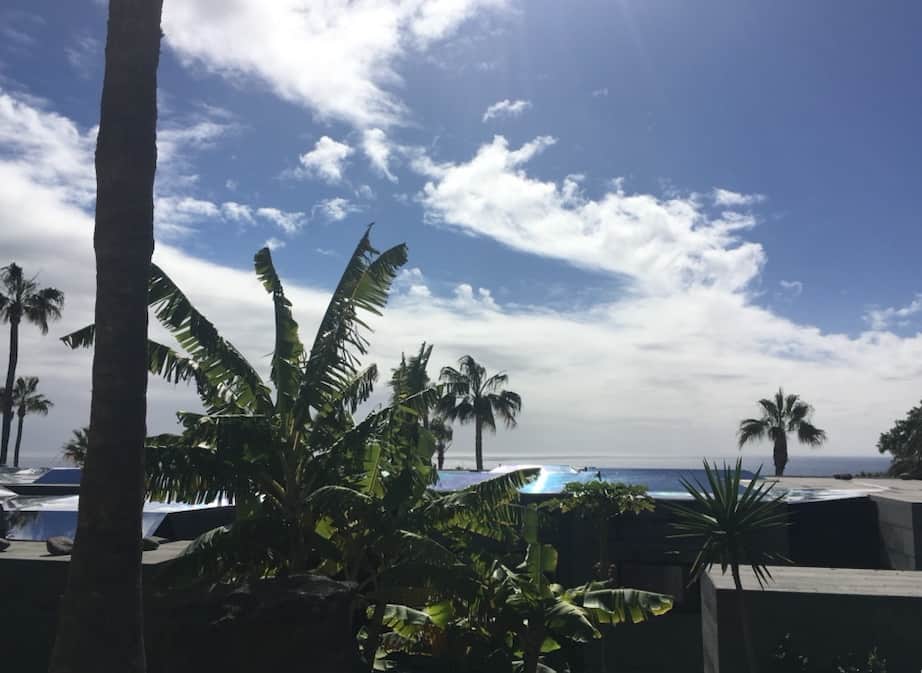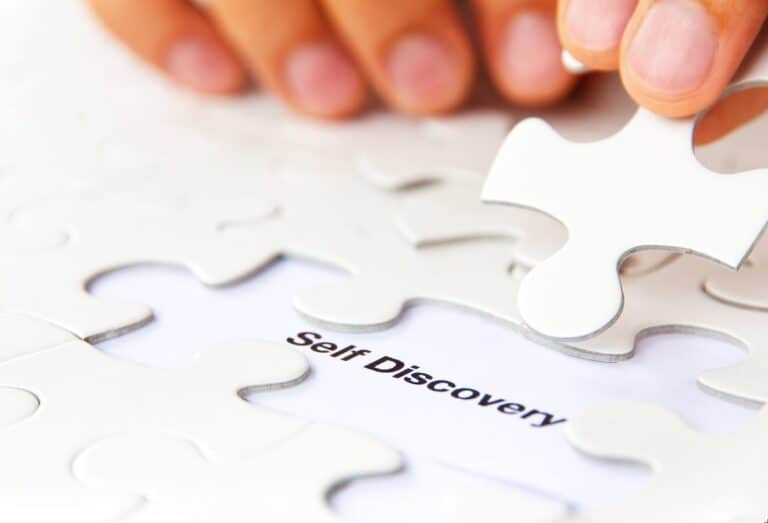Is it absurd to research how to connect with yourself?
It’s really not – but some people would probably disagree.
People can be very different. Many become “set in their ways” from early adulthood, or even their teenage years. They become resolute in their values, their ways, and their opinions.
But others are on a constant quest for self discovery and change, and perhaps see their more “steadfast” counterparts as stubbornly unwilling to evolve.
If, like me, you believe all of us humans are a work in progress, and that learning how to connect with yourself is a worthy thing to do, this article is for you. Anybody who thinks differently is – let’s face it – unlikely to be reading it!
A Little Background
I remember a conversation I had with my mother many years ago. I think I was about 25. I said something like this:
“My 18 year-old self cringed at some of the things my 16 year-old self thought and did. Now my 25 year-old self cringes at my 23 year-old self. At what age does that stop?!”
My mother informed me that if her 65 year-old self was still cringing at her 60 year-old self, the chances are that that feeling NEVER goes away!
It was only some years later, after completing several psychology courses and some counselling training, that I realised we were, unknowingly and tangentially, talking about the concept of self actualisation.
Self actualisation is all about truly reaching your potential, and living a healthy, contented life as the person you want to be. How many of us can – hand on heart – say we’re doing that?
The concept of self actualisation is one that’s been championed over the years by psychologists such as Carl Rogers and Abraham Maslow. If it sparks your interest, I’d highly recommend investing in Rogers’ “On Becoming a Person.”

This concept of constant self-discovery really captured my attention. I’m told that finding resonance with Carl Rogers’ work is far from unusual among those studying psychology and counselling!
It’s only as I approach the cusp of no longer being able to call myself “mid 40s” that I’ve really begun to understand how crucial it is to learn to connect with yourself. And my life is immeasurably better for it.
Below I share seven strategies to help you find that self connection.
1. Connect With Yourself As A Child
No, I’m not saying that you have to visit a therapist and unravel your childhood – although much of the time that can prove to be a VERY good idea!
What I mean by connecting with yourself as a child is taking time to look back and remember your hopes and dreams – before real life and responsibilities came into play.
What did you want to be “when you grew up?” Do you even remember?
Giving that question some serious thought can help pull you back to the you that existed before life got in the way.
I’m very fortunate in this. The 11-year-old version of me would have liked nothing more than to earn a living from writing and tinkering with computers, with a side order of helping people.
But it took me over two decades of working life before I did that. Like so many millions of people, I did the jobs I got, rather than the jobs I wanted.
And this isn’t just about work, it’s about play too.
Just over a year ago, I quit drinking (more on that below), and rediscovered the value of hobbies and interests (more on that below too!) I wasted many years on a quest to discover what made me happy, when the “child me” had known the answers decades before.

Sometimes the key to learning to connect with yourself is to go back to who you were, rather than focussing on who you are NOW.
2. Learn Whether You’re An Introvert or an Extrovert
You’d think this part should be obvious – but it’s not.
I spent at least 20 years as an introvert aspiring to be an extrovert. At times I managed to do it very convincingly, being the “life and soul,” and “the one who always ends up hanging out with randoms.”
I can’t honestly say why I lived such a pointless lie – I’m not nearly far enough through the whole self actualisation thing to answer that! But looking back, plenty of signs were there.
Long before I began to embrace my introversion, I was subconsciously doing things to give myself space and step away from groups: going off on my own at festivals, or finding a smaller crew to hang out with; Taking control of the DJing at parties because the din of the bass was easier to deal with than the intensity of the conversation; Or always being the one who did all the cooking, because it meant having the kitchen as an escape.
If any of this resonates with you, perhaps you’ve misclassified yourself on the spectrum of introversion vs. extroversion.
There’s an easy way to answer the question definitively:
If you’ve had a terrible week and you finally have some time to kick back, what would you rather do: surround yourself with friends and talk it out, or head to your “cave” and quietly recuperate? Very broadly, the answer to that question provides the answer.
Everything from conditioning to the expectations of others can cause us to do the opposite of what we need and want. If you want to connect with yourself, you must find out what that is.

3. Travel Solo
I discovered the joys of solo travel by mistake.
After having children, my wife and I were unable to travel as much as we could before. As somebody with major Seasonal Affective Disorder (who also lives in a rather gloomy country), this quickly impacted my mental health.
Thanks to a very kind and understanding wife, I was encouraged (and permitted!) to do some solo trips to top up my sunshine levels. What a revelation!
If you’ve never travelled solo, I highly recommend it. You WILL connect with yourself because you have little choice to do otherwise!
Spending time in your own company can be daunting. Many people do all they can to avoid it. But you learn a huge amount by being self-reliant – especially in a country where you don’t know the language and have no option but to cope.
You also discover what you actually want to do. For me, that always meant drinking less, walking more; Talking less, reading more.

Every solo trip I’ve taken has taught me more about myself. I recommend them.
4. Separate Instinct from Impulse
I wish I could remember where I read this. I may have heard it on a podcast. I thank and apologise to whoever I learned it from.
What they said is that when you make decisions, it’s important to assess whether you’re making them from instinct or impulse.
Learning this can be a major “knowledge bomb” – because it’s so simple to apply, and it works for decisions big or small.
- “I’m going to eat that second slice of cake.” – Is that your instinct saying you need the sustenance, or your impulse making you follow your usual pattern of comfort eating?
- “I’m going to quit this job.” – Is that your instinct saying you’ve truly reached an irredeemable point, or your impulse following a self-sabotaging pattern of walking away just as things are getting good?
- “I’m going out with the boys tonight.” – Is that you instinct telling you that a night out is what you want and need, or your impulse pushing you to the bar for some other reason – from wanting to fit it to not wanting to spend time in your own company?
The wonderful thing about this technique is that you almost always instantly know the answer – so long as you’re prepared to be honest with yourself. And the more often you learn to take the instinctive path instead of the impulsive one, the more you’ll be connected to your true self.
5. Step Away From Alcohol and Other Substances – At Least for a While!
Forgive me for sounding puritanical, but the truth is that you’re never going to truly know yourself while you’re “altered.”
It took me MANY years to work that out.
I could wax lyrical all day about how much quitting drinking has changed my life (you’ll find plenty of articles on this site about that). For the purposes of this article, all I want to suggest is that a period of abstinence creates a good opportunity to connect with yourself.

There are, of course, many different degrees of indulgence. Perhaps you’re thinking something like, “I only ever drink at the weekends, so it’s hardly a problem.”
Perhaps it isn’t! But what about if going out for drinks or hitting the club is all you ever do at the weekends? Remember what we said about connecting with that inner child? Did the ten-year-old you aspire to a life of “living for the weekend?”
All I’m saying is that there might be more. And you’re reading an article about connecting with yourself. Hopefully you take my point!
6. Discover Your True Hobbies and Interests
Back in 2016, a survey revealed that one in five people reported not having ANY hobbies at all. Another 24% said they only had one.
If you’re somebody who can’t instantly reel off a list of hobbies you partake in, maybe it’s time to up your game. And to help with that, it’s worth checking in with that inner child again.
My inner child would have been seriously envious of “adult me” – with the ability and means to buy all the books, computer games and records I want! He would have loved the freedom to make an independent decision on whether a given passion was worth investing in, or to be dismissed as a “fad” or a waste of time.
All adults have that freedom, but many squander it. I should know, because I was guilty of it for years.
There’s huge value in learning that not everything has to have a point, an end result, or a payoff.
Make time to create – to PLAY. Pick up something that once gave you joy but got dropped along the way.
This is definitely a lesson I wish I’d learned a lot sooner in my own life. With a limited time on this earth, we should be starting each day choosing from a huge list of things we’d love to commit some of that time to. Discovering what to put on that list should be a priority.
7. Learn About Your Myers-Briggs Type
I’m going to end on a suggestion that may be slightly controversial – but I suspect that if you’ve read this far, it’s the kind of thing that might appeal to you.
The Myers-Briggs Type Indicator is a classification system that divides people into 16 personality types, based on:
- their introversion or extroversion (I/E)
- their way of processing information – sensing or intuition (S/N)
- the way they make decisions – thinking or feeling (T/F)
- the way they view the world – judging or perceiving (J/P)
For anybody interested (or nosey!), I’m an INFJ.
Myers-Briggs classifications have been used for many years, in everything from psychology to psychometric testing by companies. The system has plenty of detractors, and some people believe it’s utter nonsense. However, I’ve believed in it since I took my first test, and found that my classification described me better than I could describe myself.

There are MANY books and online tests that will help you determine your Myers-Briggs type. If you’ve never looked into it before, you may find it a VERY interesting way to connect with yourself and learn why you are the way you are.
My own journey of self-discovery continues, and is something I’ll never make any apology for. I strongly believe that if you don’t look back on at least some past ideas, ideals and priorities as misplaced, you’re not learning or paying enough attention!
I hope that some of the self-actualisation strategies here help you to understand and connect with yourself.
Read about our latest family holiday here.






